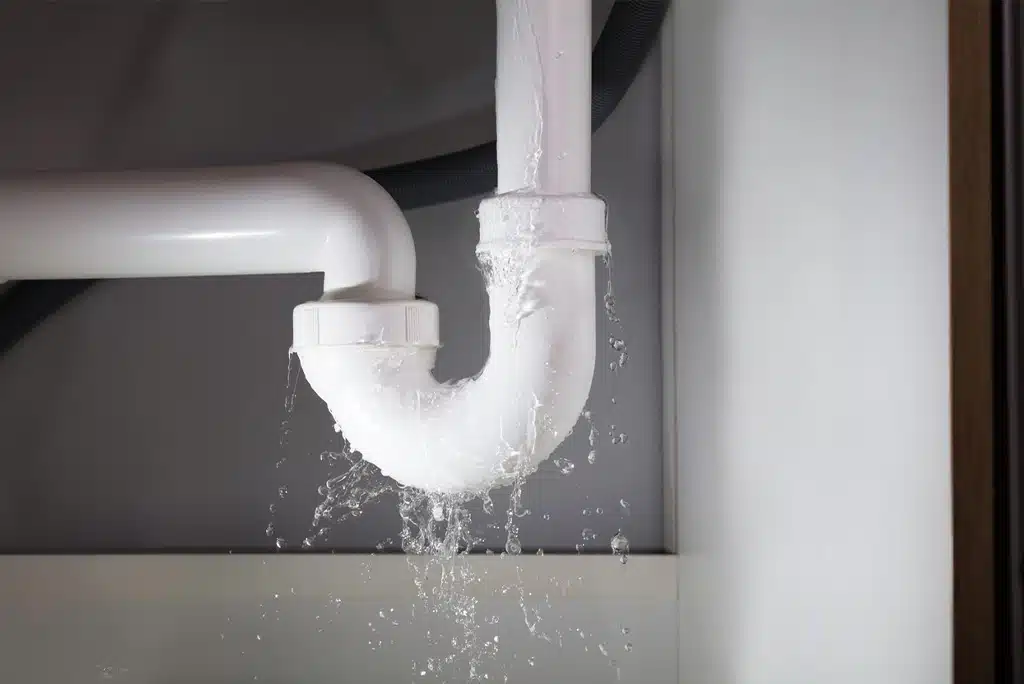Why Can’t I Breathe in My House? Indoor Air Quality Explained

It’s 2 am, and you haven’t fallen asleep yet. Your nose is running, and the back of your throat tickles persistently. You just can’t seem to get a good, deep breath. Is it the heat? Did the exhaust fan in the kitchen not know what to do with all the smoke from your earlier failed dinner experiment? Whatever it is, it’s causing you and your body unnecessary stress—but it doesn’t need to be this way. You likely have an indoor air quality issue, and our team can help.
Indoor Air Quality – A Bigger Problem Than Most of Us Think
Here are a few facts that keep us up at night:
- The Environmental Protection Agency ranks indoor air quality (IAQ) pollution as one of the top five environmental risks to public health.
2. Indoor air is often 2 to 5 times more polluted than outdoor air – and Americans spend 90% of their time indoors on average.
3. Air-conditioning, fans, and other ventilation solutions, if not properly maintained, can make indoor air quality even worse.
4. Some of our most vulnerable populations are at highest risk when faced with poor IAQ.
5. Concentrations of dangerous indoor air pollutants are increasing on average due to an increased use of synthetic materials in building materials, personal care products, and more.
Poor Indoor Air Quality Is Especially Hard on the Respiratory System
Common indoor pollutants such as radon, asbestos, mold, and more go for the ears, nose, throat, and lungs. Common health effects associated with indoor air pollutants include:
- Shortness of breath
- Allergy flare-ups
- Strain on the heart
- Headaches, fatigue, and dizziness
- Persistent coughing and sneezing
- Itchy eyes, nose, and throat
This is especially true for children, the elderly, and people with existing respiratory problems such as asthma or COPD. Poor IAQ exacerbates respiratory ailments and negatively impacts the development of small children. Amongst the elderly, poor IAQ can tax the immune system, putting them at serious risk of long-term health issues.
How to Monitor and Fix Indoor Air Quality
Fortunately, there are many ways to prevent and mitigate the effects of poor indoor air quality. We recommend:
- Investing in a DIY air quality test kit or air quality monitor to get a handle on the problem
- Removing sources of contamination if at all possible, such as toxic air fresheners and cleaning supplies, unsafe building materials, dust, mold, pet dander, etc.
- Improving ventilation in the home to ensure that dangerous buildup is not occurring by checking your air filters, airflow, and appliance efficiency regularly
- Making sure your HVAC system is safe, sensitive to air pollutants, and up-to-date
The Air Experts Are Here to Help
We offer a full suite of IAQ prevention and mitigation products and services, including:
- Efficient and affordable air purifiers & air cleaners
- Expert air duct sealing
- State-of-the-art air ventilation systems
- Moisture-controlling humidifiers and dehumidifiers
- Properly calibrated thermostats
- And more!
If you found this post helpful, check out our other blog posts, subscribe to our YouTube channel , and follow us on social media for more HVAC and plumbing tips, information, and fun!
Air Experts is always here for your Heating, Cooling, Indoor Air Quality, Plumbing, and Water Treatment needs. Our award-winning customer service team is available 24/7, or you can easily book an appointment online.







